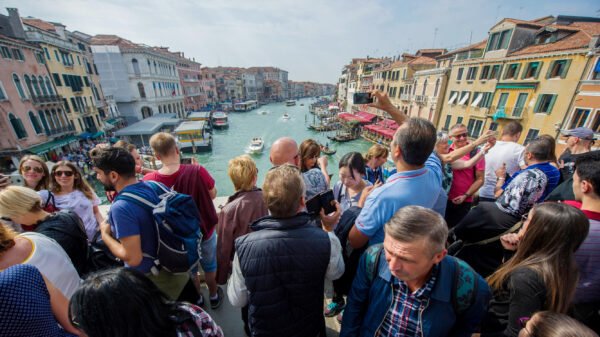
Here’s How You Can Avoid Contributing to ‘Overtourism’
Be the solution, not the problem

The World Tourism Organisation recently revealed that 2024 is set to be a record year for global travel. But with even more people looking to explore the world, this could see the problem of overtourism continue to grow even further.
Overtourism refers to the phenomenon of popular locations being visited by an excessive number of tourists, which can negatively impact the experience and affect the local area.
It has increasingly become an issue in recent years, with staple destinations like Venice being visited by over 20 million tourists annually, despite a population of just over 638,500.
To combat challenges, the city council has announced its intentions to ban tourist groups of more than 25 people, and last year it was announced that a daily tourist fee of five euros will be introduced to compensate the city for the high tourist footfall.
Other destinations implementing tourist fees include Spanish coastal city Valencia, Portuguese fishing town Olhão, and Thailand, joining the likes of Austria, Belgium, Croatia, several islands in the Caribbean, and more who already have a tourist fee in place.
Overtourism can cause a host of problems that impact locals and culture. For example, the drive of tourists in Amsterdam has caused a housing shortage and a hike in rent prices as properties are increasingly rented out to travelers.
Similarly, idyllic Bali has experienced challenges with anti-social behaviour of visitors, and Thailand has taken steps to reduce the impact of tourism on wildlife and the environment inflicted by large crowds.
So, what can travellers do to avoid contributing to overtourism challenges?
1. Opt for destination dupes
With over 1.1 million views on TikTok, destination dupes are a growing trend that sees tourists finding less popular and more affordable alternatives to classic holiday spots.
Looking for alternative destinations can not only make a trip much more enjoyable, but also prevents you from joining the masses at oversubscribed destinations.
For example, consider swapping Barcelona for Salamanca, Rome for Perugia, and Paris for Toulouse.
You can even avoid crowded attractions. Try visiting Montparnasse Tower instead of the Eiffel Tower, or swap the Sagrada Familia for Palau de la Música Catalana.
2. Visit in the off-season
If a destination is simply a must-see, try avoiding peak tourist season and visit during quieter periods instead.
The summer months and major celebrations like Christmas, Easter, Ramadan, and Eid can be a major cause of crowds, so opt for the early months of Autumn and early spring, when crowds are reduced, and the weather is slightly cooler.
Avoiding the peak season can help to distribute tourist traffic more evenly and reduce overtourism.
3. Attend guided tours and experiences
Every country and city has different cultures and social norms, and it is important to respect and abide by them.
The easiest way to learn about a culture and respect local customs and laws is to attend a guided tour led by a knowledgeable local who can give you a more authentic and personalised experience, while also offering insight into the culture and history of a new place.
A deeper understanding and appreciation of a destination can help to reduce rowdy behaviour and encourage tourists to be more respectful.
4. Stick to the ‘leave no trace’ principle
When visiting a new city or country, travellers should always stick to the ‘leave no trace’ principle to reduce their impact on the local area.
This means leaving all sites as you found them by removing all rubbish and waste and disposing of it responsibly.
Visitors should also stick to designated trails and paths to avoid disturbing any wildlife or inflicting damage and refrain from touching or vandalising important sites to preserve their integrity.
By Travel Expert Guillaume Picard, Co-Founder of TourScanner











































